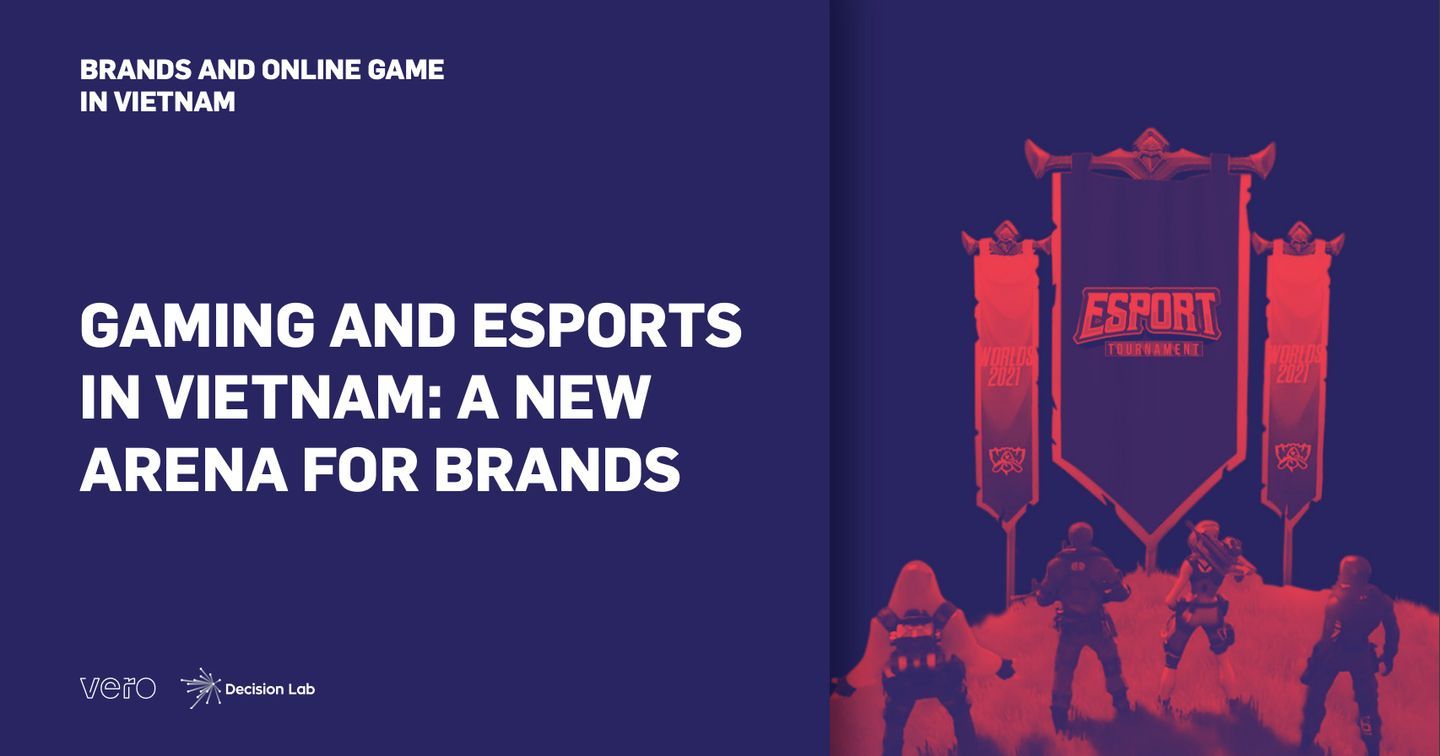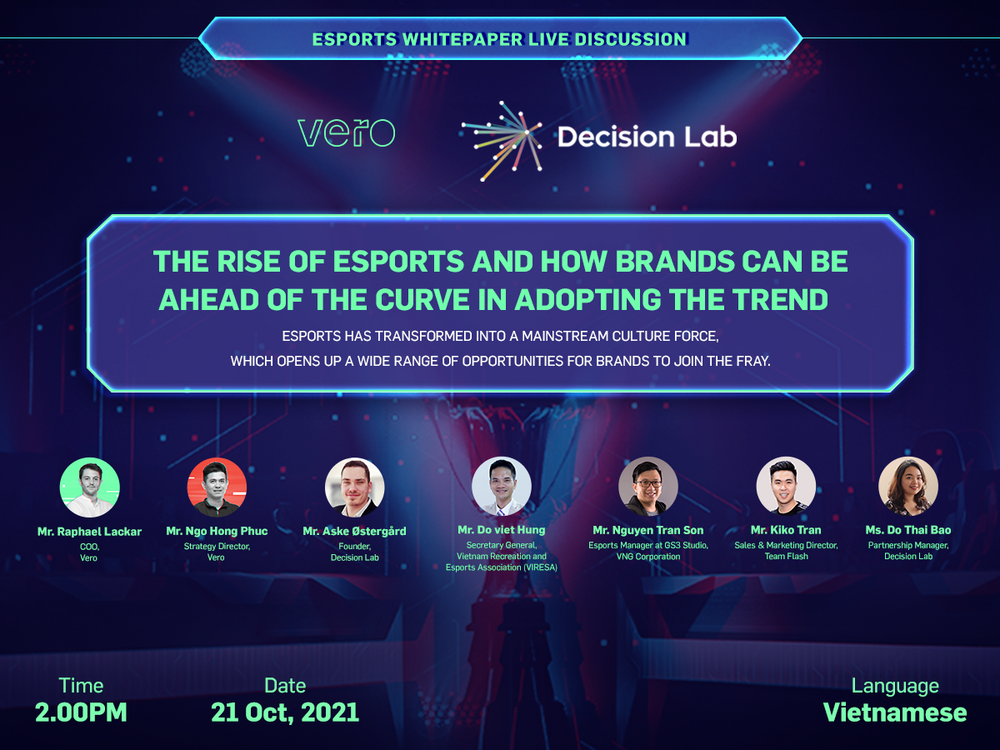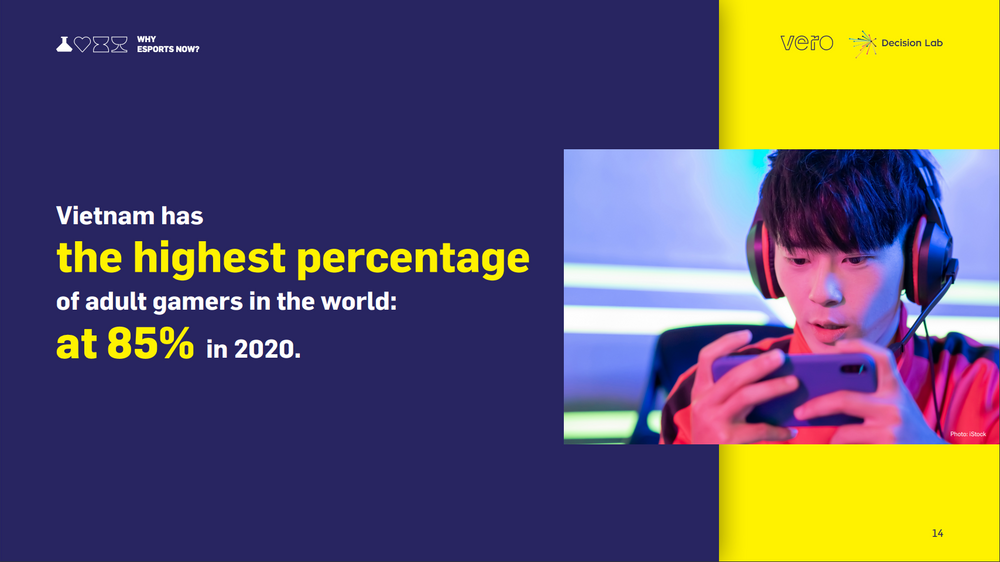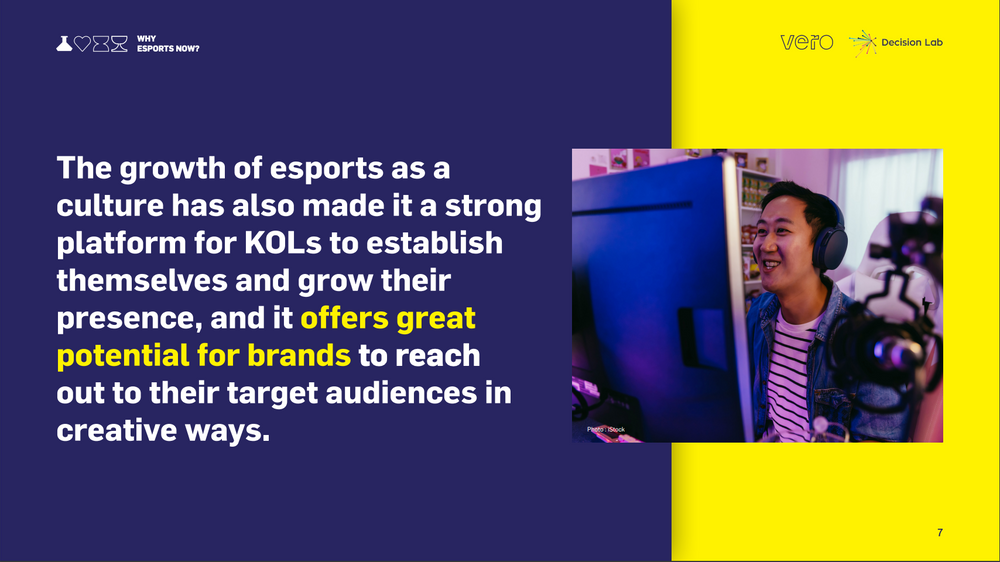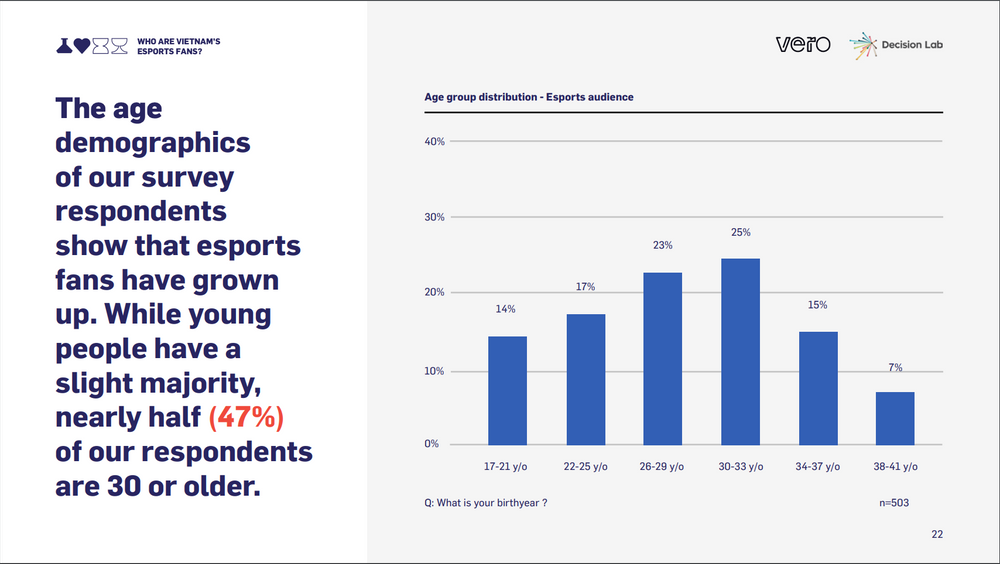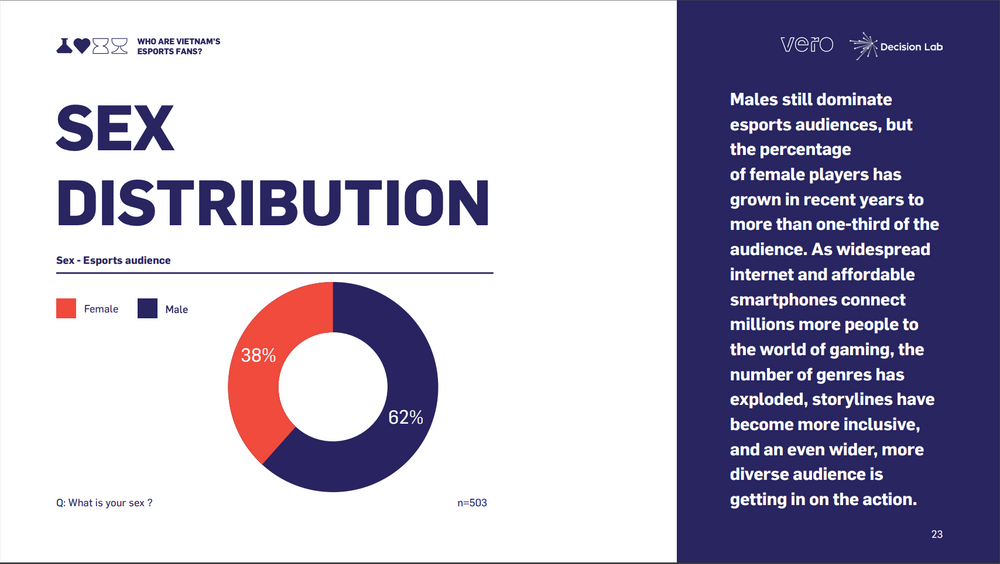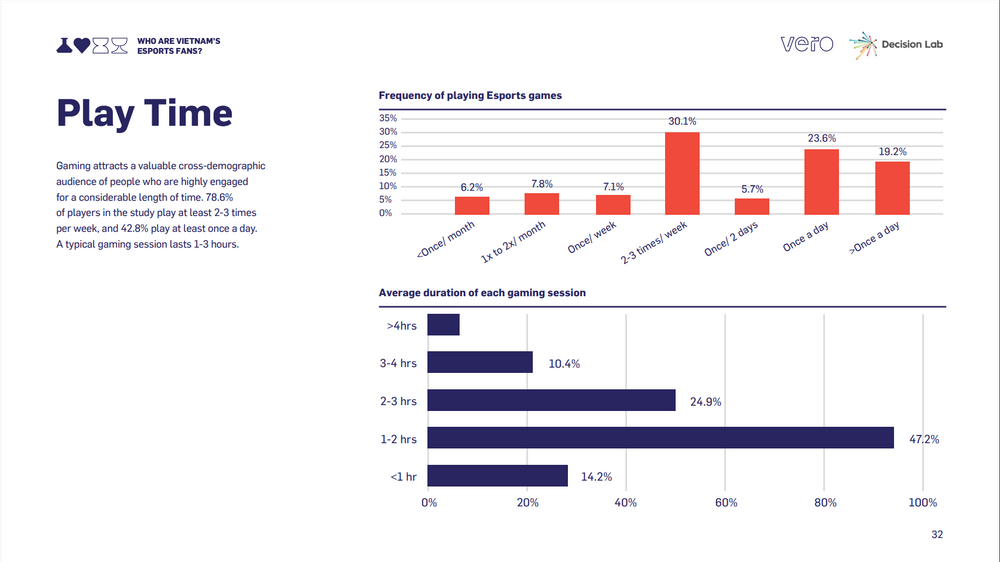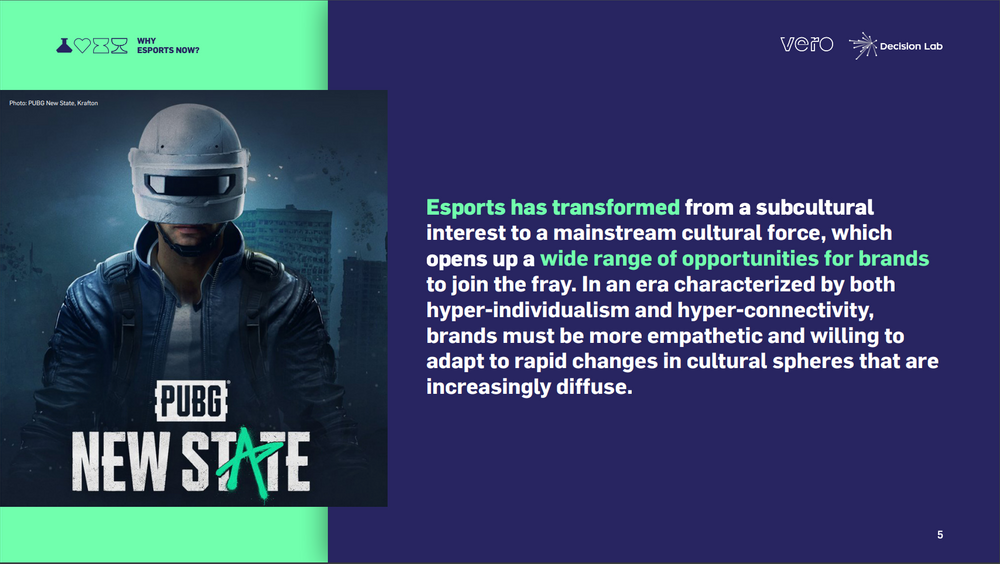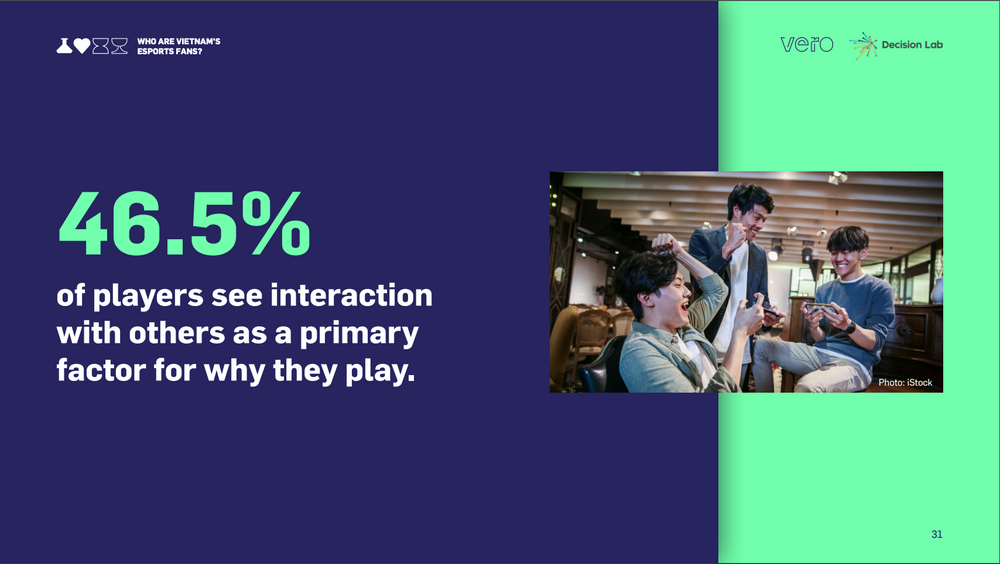This article is also available in Vietnamese.
Vero and Decision Lab released a 2021 study of the gaming and esports industry context in Vietnam, including the industry culture and trends, preferences and behaviors of gamers and fans, as well as the potential of the field for marketers and brands.
Vero recently held an online press conference launching a whitepaper on the esports industry in Vietnam in cooperation with Decision Lab. In this live session followed by a panel discussion, representatives from Vero, Decision Lab, Vietnam Recreational and Electronic Sports Association (VIRESA), Team Flash, and VNG discussed the landscape of the esports industry – a new mainstream culture that is gradually asserting its position in Vietnam, and around the world.
Each year, Vero commissions research on a specific subject, and launches it as a white paper to provide useful information to industry professionals. With the emerging development of esports in recent years, Vero chose this subject as their main focus in 2021. This study aims to have a deeper look into the characteristics and behaviors of esports gamers and fans, as well as the communication channels through which brands may learn from and get involved in in Vietnam’s booming esports scene.
Like its precursor – gaming, esports has transformed from a subcultural interest to a mainstream cultural force, opening a wide range of opportunities for brands to join the fray. Vietnam, with a large, dynamic, and well-integrated youth population, is catching up with the development of the esports industry. The country is an attractive growth market for the gaming industry, with one of the youngest populations in the region, withthe highest percentage of adult gamers in the world in 2020. About a third of the population in Vietnam are now playing esports games.
"By asking questions about players’ behaviors while playing and/or watching esports and how they interact with various brand communication activities, we focus on exploring ways for brands to leverage esports to engage customers and keep up with their cultural footprint," Aske Østergård, Co-founder and CEO of Decision Lab says. In the live conference of Vero’s whitepaper launch, industry expert guest speakers shared their views and valuable insights about the esports industry in a panel discussion.
“In 2021, esports will continue to appeal to a large audience in Vietnam. In contrast to other sports, the digital nature of esports has allowed it to maintain many of its events and tournaments despite the COVID-19 pandemic.” said Mr. Do Viet Hung, Secretary General of Vietnam Recreational and Electronic Sports Association (VIRESA). Mr. Do also mentioned that the inclusion of esports in the 31st SEA Games should also help to enhance its perception in Vietnam.
Mr. Kiko Tran, Sales & Marketing Director of Team Flash also shared the opportunities that esports influencers can bring to a brand: “Influencers have so much to offer when it comes to elevating brands in the e-sports industry, partly because of their ability to reach a wide range of audience and partly because of their experience of working with sponsors, though the latter may not be applicable to all. There are two ways esports influencers can help increase brand awareness: introducing brands to new consumers and reaffirming existing consumers that their choice with a particular brand is well supported.”
"Given the enormous value that the community and ecosystem of e-sports can bring, I believe that investors and big brands will not be able to ignore this fertile land full of potential. In the not too distant future, competition between brands will become more and more intense. I believe that encroachment on esports at this time is perfectly appropriate to deliver the highest value at the lowest cost," Mr. Nguyen Tran Son, Head of Esports Manager at VNG Corporation said.
Nearly half of esports players are between the ages of 30 and 40, and women make up a third of esports players today
While young people still make up the majority of the esports population, nearly half (47%) of respondents are aged 30-40. The study also found that female esports participants made up more than a third (38%) of the total participants. These figures show that esports audiences today are much more diverse than assumed.
Beside entertainment, esports players consider interaction important factor in playing
Contrary to the stereotype that gaming is solitary and antisocial, esports games function as social platforms. While most people play for fun and stress relief, 46.5% of respondents see interaction with others as a primary factor for why they play. The most played game genres, according to the study, are multiplayer online battle arenas (MOBA) and first-person shooters (FPS); both are available on PC and mobile.
The e-sports industry promises to open many opportunities for brand collaborations
Brands can enter the esports market through activities such as in-game advertising, cross-platform advertising, tournament sponsorship, team/player sponsorship, or through co-creation.
According to research, forms advertising remain an effective tactic for brands to connect with their potential customers. 86% of esports viewers claim that they interact with the brand's ads. Over half (51%) of watchers trust the products recommended by KOLs they follow, and 42% buy such products often and consider them personally relevant.
In addition, unlike traditional sports, esports players can also actively create their own content instead of just consuming content provided by esports gamers. This opens up a lot of new opportunities for brands to interact with the public and co-create high-value content. Therefore, brands should consider the esports industry a “co-business” rather than a “show-business.” By leveraging the ecosystem of e-sports, brands can reach the public easily and optimize their campaigns.
The complete whitepaper is now available for download in both English and Vietnamese here.





